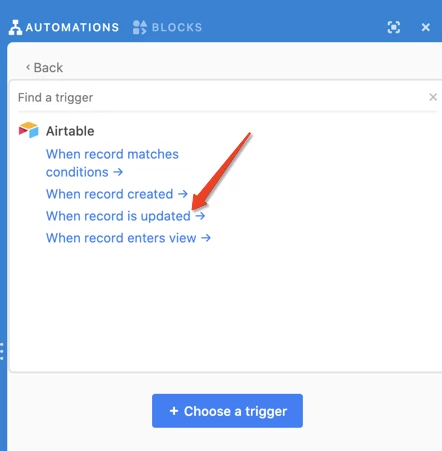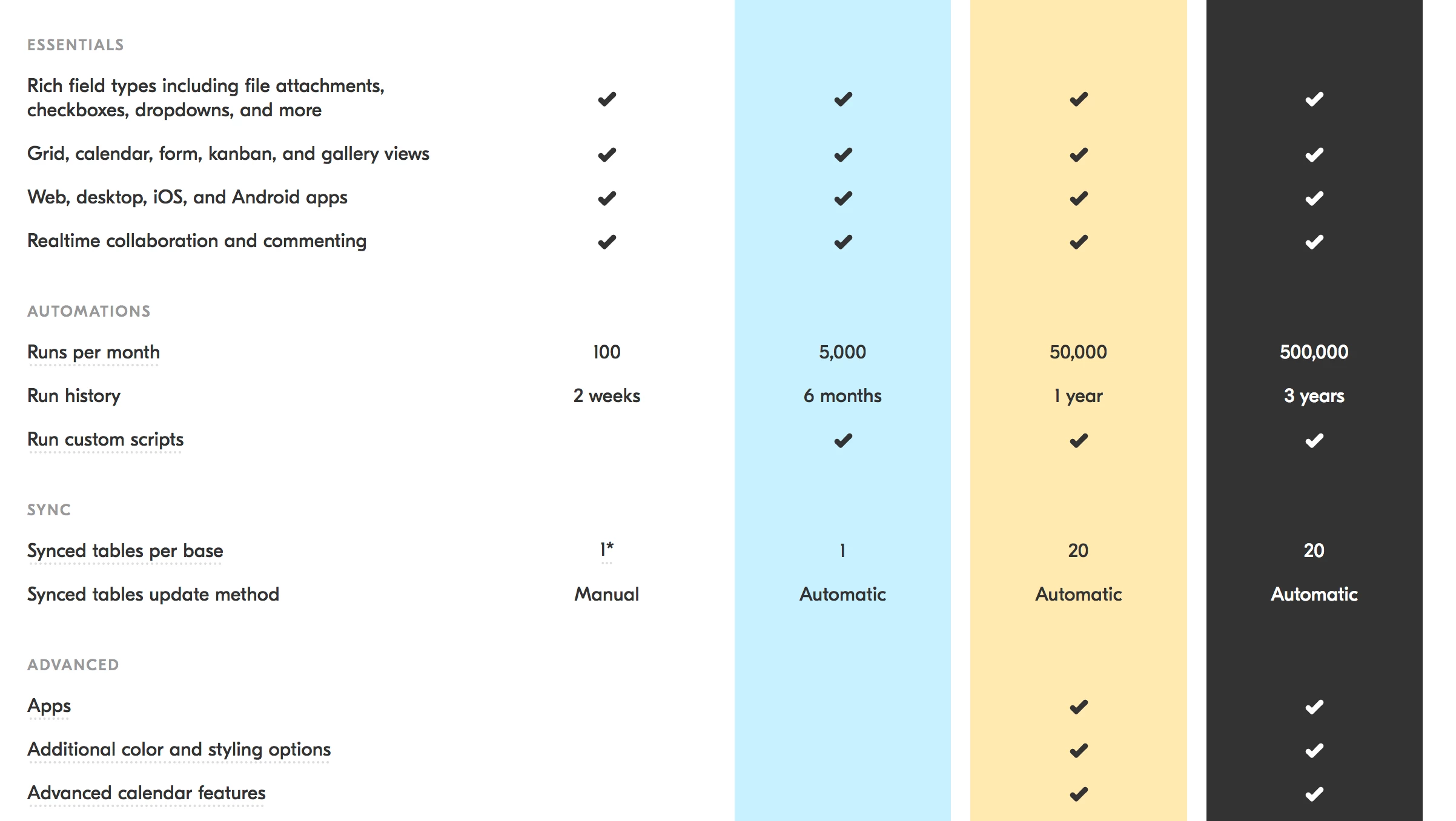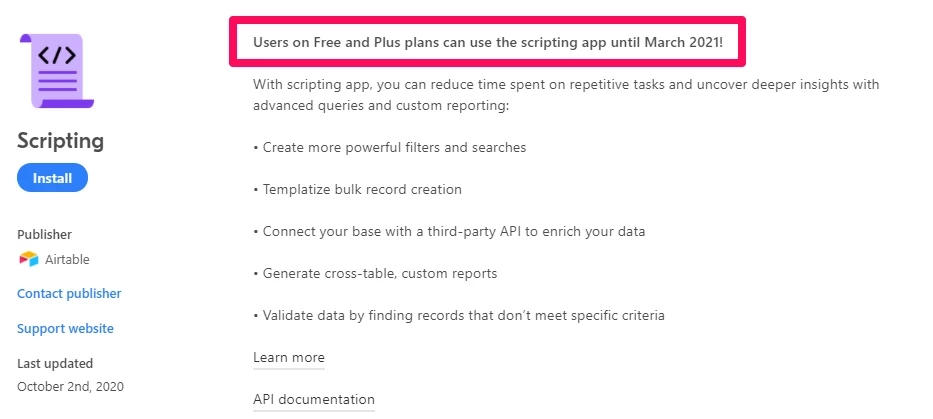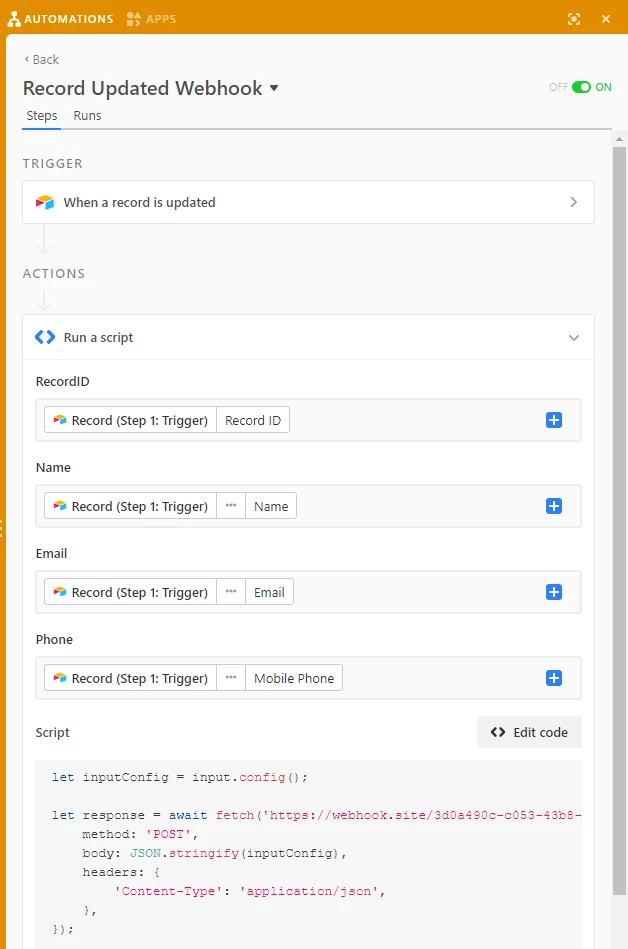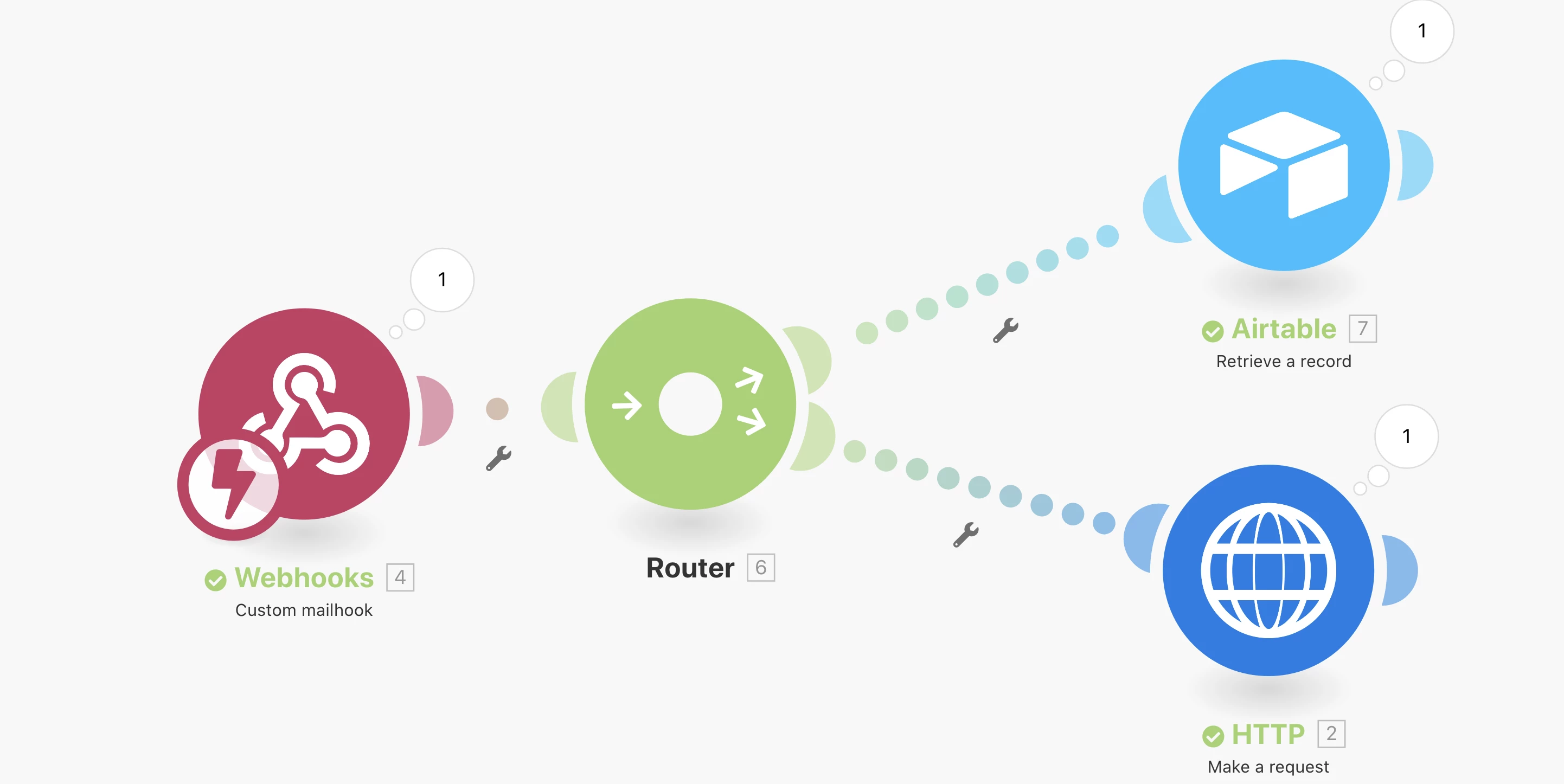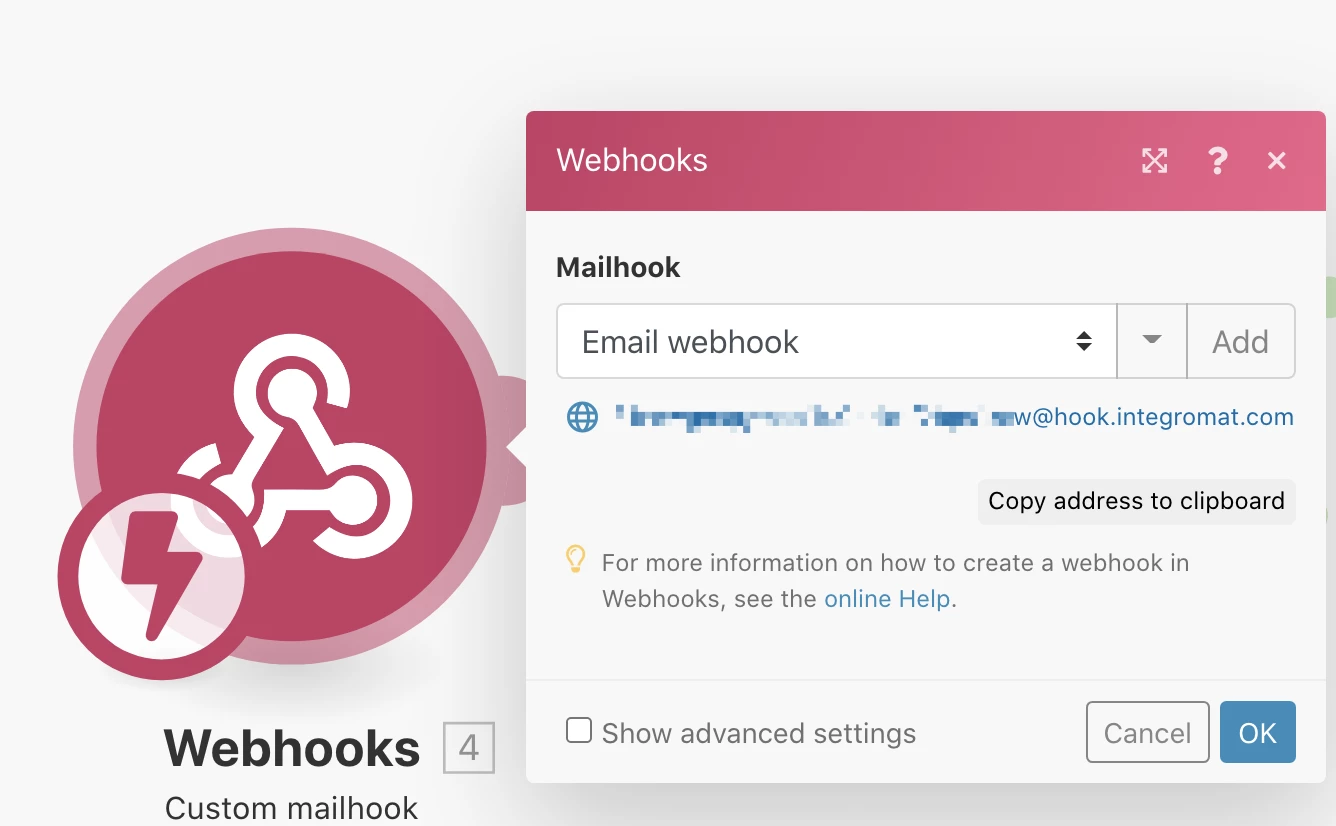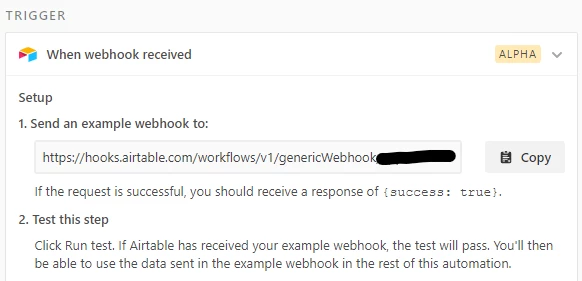Webhooks for records would be really useful.
I’m heavily caching Airtable data on my own server via the API, and if Airtable could notify my server when a record is updated, created, or destroyed, that would help me invalidate the cached data and re-request it.
Ultimately that would mean less calls from my server to the Airtable API, which I imagine would please Airtable.
Are webhooks on the roadmap at all?




